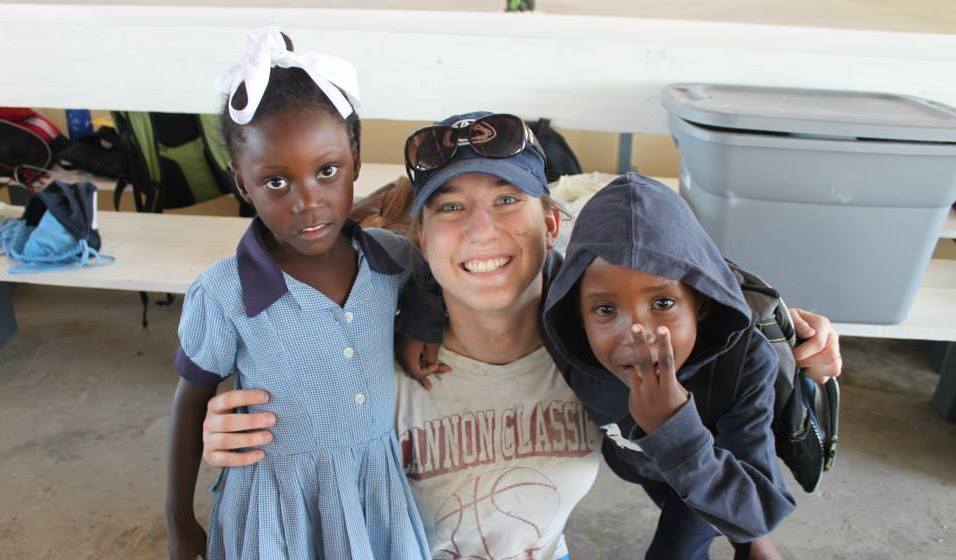When traveling, especially to a foreign country, I am often first struck by the new landscape or smells, but by the time I leave, my lasting memories are of the people I have met. There is always a temptation to get stay caught in the “picture:” the scenery, the smells, the newness of the experience and never move into three dimensions: the people, their lives, their pains, and their joys. But as my trip to Haiti this spring break reminded me, moving into three dimensions is most important part of life no matter where I am; to see the people for who they are, because human nature transcends time and space.
In Haiti I saw a lot of disturbing things. I saw a woman with a tumor the size of an orange on her face sitting in her back yard while I was painting the overlooking fence. I saw an 11-month-old baby who was so malnourished he couldn’t pick up his head. I played with a little girl for a couple of days, met her mother, and was asked later by one of her friends if I was going to adopt her because we loved each other. A small group I was a part of was asked extremely tough questions, like, “why doesn’t God answer my prayers?” and, “does the faith of a nation determine their prosperity?” But in spite of my challenging feelings, I was left reflecting upon God’s love and upon His sovereignty that gives purpose to the lives of those I encountered and to my life.
It is easy for me to remember the challenges I observed and faced and the images will never be erased from my memory, but the challenges did not define my trip. What I will remember most is the wisdom with which our translators spoke: the insight that they brought into our journey in Haiti. I will remember the joy I heard with every song that rang out from the church and filled the community. I will remember how God used the people I met to move me away from the contentment that I had gotten accustomed to, to a place where I am asking God to use me for His glory, even if it is at the expense of my comfort.
What was important about our trip was not the work that we did for the mission, the mixing and carrying of concrete, the painting, and the picking up of trash, but the realization that despite material possessions and the lack there of, we are all the same. In all honesty we are no more fortunate than they are. We may have more possessions, but we lack the richness of communal responsibility. This is a hard concept for those of us who come from tight communities, however, I guarantee that our sense of community and our responsibility to one another does not begin to compare to that of the people I met in Haiti.
For instance, we met a young man who is not getting married for several more years in order to fully devote himself to providing for parents and siblings. We encountered many multigenerational households full of individuals who put the needs of their family members before their own. And we met teens, full of ambition, whose life goals were not to become doctors or lawyers, but to run orphanages. But it is these things: the sense of community, hope, and happiness, despite a lack of basic necessities, that I will remember most about
my trip to Haiti.
Written by Lisa Davis, current M.A. student at Pittsburgh Theological Seminary.

